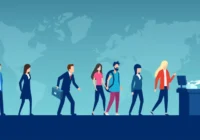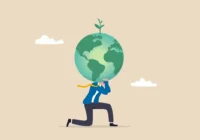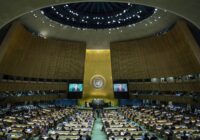The life of a human rights defender can be very lonely and isolated.
Growing up, I was exposed to courageous feminists from Pakistan, the Middle East and India when my father would gather artists and intellectuals from different parts of the world in our home for discussions about world politics, human rights and social justice. As a young girl, I was inspired and moved by these women, mesmerized by their courage, kindness and fearlessness. Women who were larger than life speaking truth to power, regardless of the personal costs. I was in awe of what they stood for, but at that time I had very little sense of the danger they were in.
However, over the years, I have come to realize that being a lawyer, journalist, artist or trade unionist can be a job with more risk of physical injury than working in a mine or construction site—if those legal, literary or organizational skills are directed at securing human rights.
Safety on the Line
It is those who work to secure the human rights of women, sexual and ethnic minorities, and the poor who are the least secure themselves—vulnerable to state and corporate harassment from hired thugs, the forces of the law and armed groups; vulnerable to smear campaigns presenting them as terrorists, security threats or immoral persons; invasions of their privacy; harassment of friends and relatives; intimidation; imprisonment; seizure of their assets.
Endless methods are applied to attempt dissuading human rights defenders from raising their voice against injustice, discrimination and oppression. These women are not just fighting for their own rights to freedom and equality in dignity and rights, but they are also fighting for me and all women and girls around the world.
If these women put their own safety on the line for all of us, then what are we doing for them? What can we do for them?
I believe solidarity is key. When I participated in a panel conversation at the United Nations (UN) in Geneva for Human Rights Day 2013, I met one of my heroines, Pakistani activist Hina Jilani, who mentioned that the life of a human rights defender can be a very lonely and isolated one. Her comment shows the importance of solidarity. That’s the least we can do for our sisters on the frontlines of the struggle for women’s emancipation from discrimination, violence and injustice.
In 2013, the organization Frontline Defenders noted the killing of 26 human rights defenders from countries as various as Cameroon, Colombia, the Democratic Republic of Congo (DRC), Guatemala, Honduras, India, Kenya, Pakistan, the Philippines, Somalia and Venezuela. Of course, many people have simply disappeared, and their ultimate fate will never be known.
The range of abuses these brave individuals confront is immense—for activities from protecting the environment and defending the cultural rights of indigenous peoples, to attempting to unionize labor. One of the more precarious areas of activism, however, is campaigning for women’s sexual and reproductive rights, and against violence against women, because these confront deep-seated patriarchal ideologies around “family values” and “morality.”
According to the Women Human Rights Defenders International Coalition, female activists “face the same types of risks faced by all human rights defenders but because of their gender they are also the target of gender-based violence and gender-specific risks.”
In Iran, for example, women’s rights defenders have faced imprisonment, which may include torture, for crimes as trivial as attending peaceful demonstrations. Nasrin Sotoudeh, an Iranian lawyer and winner of the European Parliament’s 2012 Sakharov Prize for Freedom of Thought, was given a sentence of six years for her defense of children facing the death penalty. The charges against her included not wearing a headscarf in a video and “acting against national security,” as well as spreading anti-regime propaganda.
Although she was released early, there remain an unknown number of political prisoners in Iran’s notorious Evin Prison, in which the torture and sexual abuse of prisoners have been suspected.
Violence From All Sides
Violence against human rights defenders does not only come from the state, but can also come from the family. Laxmi Bohara, a Nepalese activist, was allegedly murdered by her husband and his mother in 2008. Her husband and his family saw her activism as tantamount to adultery and unsuitable for a “good” Hindu woman. Those of her friends and colleagues who campaigned for justice in her case were themselves targeted with threats and violence.
There is a dizzying amount of evidence for the persecution of female human rights defenders. Wabiwa Kabisuba ran a center for victims of sexual violence in the Democratic Republic of Congo. She was dragged from her home by eight uniformed men and shot dead. Kabisuba is only one of many women threatened and attacked in the DRC.
Lorena Cabnal was one of many women opposing the exploitation of mineral resources upon land claimed by the indigenous Xinka people of Guatemala, and supporting women’s rights. She has received death threats for her work from 2004.
Hina Jilani, who served as special representative of the UN secretary general on the situation of human rights defenders from 2000-08, is unequivocal about the value of protecting human rights defenders, which she identifies as “central to the promotion of human rights, the development and strengthening of democracy and the respect for the rule of law.”
The current political climate does not make this easy. The present special rapporteur, Michel Forst, says: “Around the world governments are using the imperatives of economic development and the need to counter terrorism and violent extremism to justify, or as a subterfuge for, laws and policies which unnecessarily and disproportionately restrict the rights to freedom of expression, association and assembly. Increasingly, these laws not only restrict but criminalise the exercise of these rights and the vital work of human rights defenders.”
In Our Debt
We owe it to these heroes on the frontlines to consider the work to defend human rights activists: a free and fearless civil society is essential to democracy, peace and justice. The actions of human rights defenders like Nasrin Sotoudeh, Laxmi Bohara, Wabiwa Kabisuba and Lorena Cabnal serve on the frontline of the fight for human rights for us all. The most dangerous job in the world is the most vital for humanity.
It is in all our interests to take every possible step to reduce the hazards of standing up for the victims of human rights abuses. These courageous and compassionate women are making the world a better place for the coming generations. I acknowledge their sacrifices and contributions for human dignity and equality, and my heart is filled with gratitude and respect for them. I stand in support and solidarity with the very best expression of humanity and courage—these remarkable champions of human rights—I stand with them in respect and solidarity.
*[Joanne Payton assisted with research and rewrites for this article.]
The views expressed in this article are the author’s own and do not necessarily reflect Fair Observer’s editorial policy.
Photo Credit: Burlingham / Shutterstock.com
 We bring you perspectives from around the world. Help us to inform and educate. Your donation is tax-deductible. Join over 400 people to become a donor or you could choose to be a sponsor.
We bring you perspectives from around the world. Help us to inform and educate. Your donation is tax-deductible. Join over 400 people to become a donor or you could choose to be a sponsor.
Support Fair Observer
We rely on your support for our independence, diversity and quality.
For more than 10 years, Fair Observer has been free, fair and independent. No billionaire owns us, no advertisers control us. We are a reader-supported nonprofit. Unlike many other publications, we keep our content free for readers regardless of where they live or whether they can afford to pay. We have no paywalls and no ads.
In the post-truth era of fake news, echo chambers and filter bubbles, we publish a plurality of perspectives from around the world. Anyone can publish with us, but everyone goes through a rigorous editorial process. So, you get fact-checked, well-reasoned content instead of noise.
We publish 2,500+ voices from 90+ countries. We also conduct education and training programs
on subjects ranging from digital media and journalism to writing and critical thinking. This
doesn’t come cheap. Servers, editors, trainers and web developers cost
money.
Please consider supporting us on a regular basis as a recurring donor or a
sustaining member.
Will you support FO’s journalism?
We rely on your support for our independence, diversity and quality.






